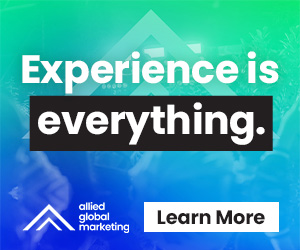 In the brave new world of artificial intelligence, businesses will have to tread carefully if AI is to be deployed efficiently and accurately to solve their business challenges. For the time being, however, the human touch will be needed more than ever, writes Colm Finlay.
In the brave new world of artificial intelligence, businesses will have to tread carefully if AI is to be deployed efficiently and accurately to solve their business challenges. For the time being, however, the human touch will be needed more than ever, writes Colm Finlay.
“Artificial intelligence is not a substitute for human intelligence; it is a tool to amplify human creativity and ingenuity.” – Fei-Fei Li
Since the launch of OpenAI’s ChatGPT in November 2022, companies and institutions across the world have scrambled to keep abreast of the emerging new landscape that AI has left in its wake. While AI is undeniably a formidable force that will influence every sphere of our lives, it is not always clear how, or even if, it can be leveraged by businesses or institutions to full effect.
Key questions exist as to the pace at which new technologies are emerging; how humans can be trained to use AI; and how AI systems can be integrated within existing technological and bureaucratic superstructures. Pessimists claim that AI is likely to surpass humans, leading to the greatest disruption to the jobs market since the Industrial Revolution, while optimists envision a world in which AIs and human operators work in synergy. Sceptics abound too, who deny the promise of AI altogether.
AI has already shifted the paradigm in diverse domains from business and academia to government and day-to-day life. Our own internal research into its use in our industry over the past year has confirmed a proliferation of areas in which AI has potential still further to disrupt current practices, and amplify human creativity. They have also shown that it is a human using AI that is more likely to take your job, rather than AI on its own!
Making manual tasks easier is of course an important use case, and we have been working with suppliers to use GPT4.0 in order to categorise, sort and analyse verbatim responses from consumers in survey data. The AI technology is capable of analysing thousands of responses in mere seconds, a fraction of the time it would take a human coder. Moreover, it has powerful capabilities to create new code books, re-classify themes, or emulate pre-existing frameworks.
With our international colleagues in the WIN Network have also been trialling a new AI based technology to rapidly analyse survey data. The platform takes a simple survey data upload, and automatically generates basic reports in PowerPoint, conducts statistical analyses, and other outputs, all in the space of minutes.
While these platforms offer significant time savings compared to humans, they crucially do not undermine the importance of the researcher. Rather they serve as time-saving devices, freeing up resource for the researcher to focus on the more creative and analytical side of the work. They also show the importance of human input in controlling and prompting AI resources.
In a human vs AI competition, the AI system and a human researcher were pitted against each other, tasked with analysing data from a health survey carried out in dozens of international markets. The machine was able to quickly generate a multitude of charts breaking down the results of the survey by market far faster than a human, but the human researcher proved supreme in generating key insights.
The AI platform’s output was somewhat generic with summary statistics replacing real insight, while the human researcher was able to dig deeper into the findings in the context of what we know already, to deliver more unanticipated insights that cut deeper into the issue.
With the automated coding tool also, there remains a necessity to have human researchers in the loop. Without their oversight, any automated technology is prone to spitting out run-of-the-mill or even non-sensical findings. The obvious solution is humans being trained to work in tandem with AIs, and leveraging its capabilities, freeing up capacity to focus on other more profound elements of the research.
Risks of course abound with AI as with any other new technology. Our experience to date suggests businesses must prioritise upskilling human workers to work with AI both for reasons of efficiency, but also to ensure that no one loses a job due to innovation.
With the rate of pace of AI development, a key concern going forward is likely to be investing in the right technologies and platforms. There’s little point in investing in a new platform if it’s likely to be surpassed within months. Another key consideration will be managing to integrate new AI platforms with existing technologies and work processes. A glamorous new product might be enticing, but will it integrate with whatever systems are already in place? Above all, AI systems will have to be safe, rigorously tested, and implemented in line with key tenets of Responsible AI: empathy; transparency; fairness; and accountability.
With these risks and considerations in mind, how do businesses invest in AI so as to increase productivity while also avoiding waste and major political and ethical quandaries? There’s no clear answer to this question yet. Traditional wisdom would suggest proceeding at a moderate pace in order to fully take stock of the situation before making decisions. However, AI is fast becoming an unstoppable juggernaut, and the sheer speed at which it is likely to transform industry and society will threaten any businesses too slow to adapt to new technologies. Simultaneously, businesses that are too quick to jump on new developments could end up wasting time and resources on the wrong upgrades.
We will all have much to grapple with in this brave new world, but it’s certain that humans working with AI will be at the centre of almost everything we do in the years to come. However, in a world where we are all (marketing and insights alike) charging headlong into the embrace of new technologies, new hybrid ways of working and AI, we mustn’t lose sight of our role as research and insight advisors to deliver a real connection to actual human beings by measuring, asking and listening directly to their needs.
Colm Finlay is a Research Project Manager with RED C Research & Marketing.




















